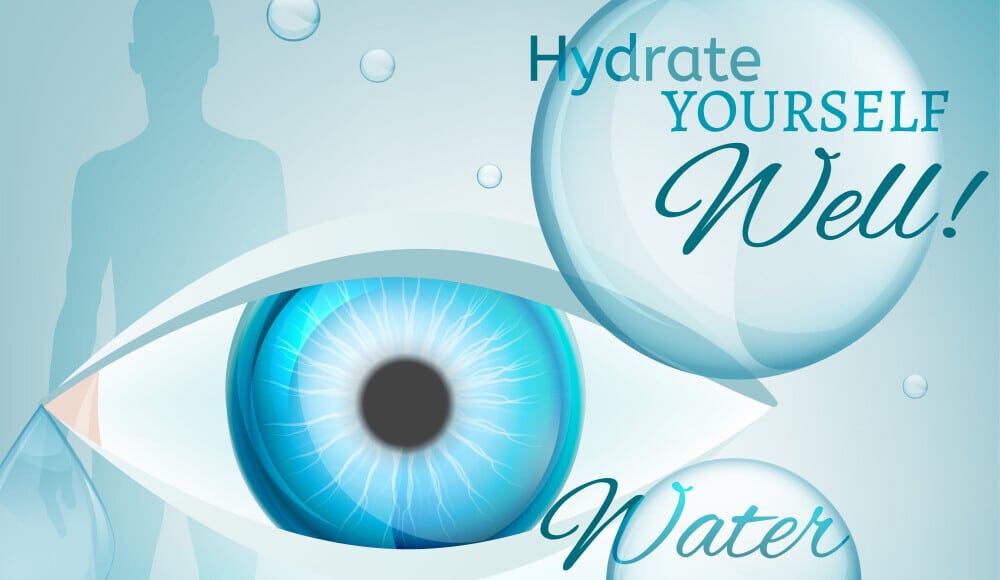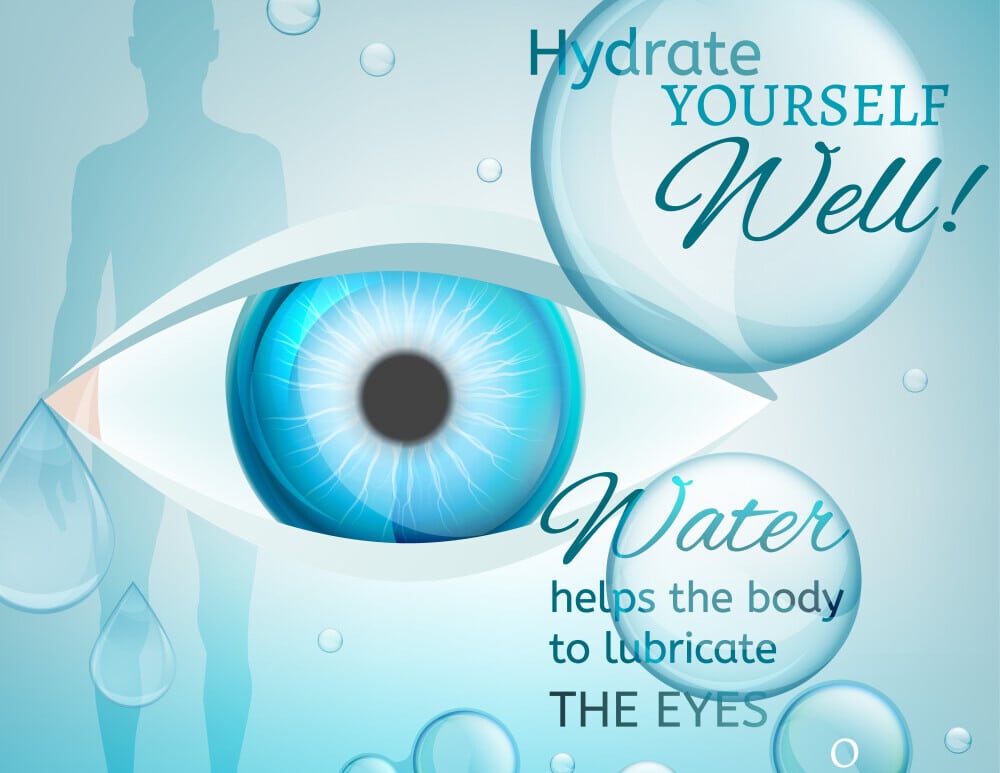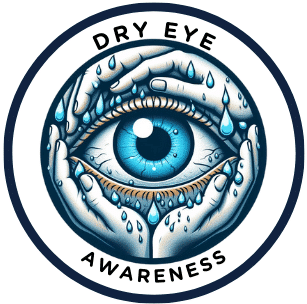
Dry Eye Syndrome (DES), is a common eye condition where tears aren’t able to provide adequate lubrication for the eyes. This leads to inflammation and, sometimes, damage to the eye surface.
My eyes, like yours, rely on a delicate balance of water, oils, mucus, and antibodies that make up our tears. They are essential for the health and comfort of our eyes.
One reason your eyes may become dry is lack of adequate hydration. Without enough water, the tear glands in our eyes struggle to produce tears, leading to the scratchy and uncomfortable sensations that characterize DES.
Symptoms of this condition can range from a mere sandy feeling in your eyes to more severe complications like increased risk of eye infections or damage to the eye surface.
I hope to clarify the connection between staying hydrated and managing DES effectively. It’s a matter of health that deserves close attention.
The Science of Tears: Hydration’s Impact on Tear Production
Tears are more than just water; they’re a complex blend of oils, water, mucin, and various proteins. Their main job is to protect and moisturize your eyes. When you blink, tears spread across the surface of the eye, forming a film that defends against infections while keeping your vision clear and your eyes comfortable.
Dehydration can throw off this intricate balance, leading to a less stable tear film. This instability can cause your eyes to become dry and irritated. Imagine a well-oiled machine suddenly running low on oil; the same concept applies to your tear film without sufficient hydration.
The connection between the body’s overall hydration status and the lacrimal glands—the ones responsible for producing the watery component of your tears—is critical. When you’re dehydrated, these glands can’t produce enough fluid, leading to a thicker tear consistency, which is less effective at maintaining eye comfort and health.
Research offers valuable insights into the importance of water intake for maintaining a healthy tear film. Studies suggest that even mild dehydration can impact tear production, underscoring the need to drink enough fluids throughout the day for optimal eye function.
Integrating Hydration into Dry Eye Management

You may not immediately connect the water you drink with the health of your eyes, but there’s a significant link between hydration and the management of Dry Eye Syndrome (DES). Keeping your body well-hydrated is fundamental for maintaining a healthy tear film.
Starting with your diet, ensure that you’re drinking plenty of water throughout your day. The oft-recommended eight glasses a day is more than a health mantra; it’s a basis you can adjust based on your activity level, the climate you live in, and your health status making sure to always listen to your body’s needs.
Electrolytes, such as potassium and sodium, are crucial for maintaining your body’s overall fluid balance. Including natural sources of electrolytes in your diet like bananas, sweet potatoes, and coconut water can support ocular hydration. Furthermore, omega-3 fatty acids from fish, flaxseed, and walnuts have been shown to support the oily outer layer of the tear film, which is vital for preventing tear evaporation.
Your environment plays a significant role too. Air conditioning, heating, and even some medications can contribute to moisture loss from your eyes, amplifying dry eye symptoms. Counter this by staying well-hydrated, using a humidifier, and taking regular screen breaks to encourage blinking, which naturally moisturizes the eyes.
Lastly, EACH PERSON IS UNIQUE, and so are the hydration needs. Consider factors such as your health history, medication use, and lifestyle when developing a personalized hydration plan. If you are struggling with DES, consulting a healthcare provider could provide additional guidance tailored to your specific needs.
Beyond Water: Comprehensive Care for Dry Eye Syndrome
Hydration is fundamental, but it’s only a piece of the puzzle when it comes to managing Dry Eye Syndrome (DES). Lifestyle factors, such as reducing screen time, avoiding smoky environments, and ensuring adequate blink rates during prolonged computer use, also play a significant role.
In cases where these adjustments aren’t enough, medical interventions may be necessary. Eye care professionals can offer treatments ranging from prescription eye drops to punctal plugs that help retain moisture on the eye’s surface.
For those experiencing persistent discomfort or vision disturbances, I urge you not to hesitate in seeking professional advice. Doctors can determine if your symptoms are due to DES or another condition, providing tailored treatment plans.
Looking ahead, continuous research is vital. It brings hope for new treatments in the future. Scientists are currently exploring options like autologous serum eye drops and advanced lid margin treatments which may offer relief where traditional methods fall short.
In conclusion, while staying hydrated is crucial for mitigating symptoms of DES, complement this with a holistic approach. Make lifestyle adjustments, use medical treatments if necessary, and pay attention to the ongoing advances in eye care. This comprehensive strategy is your best defense against the challenges of Dry Eye Syndrome.
